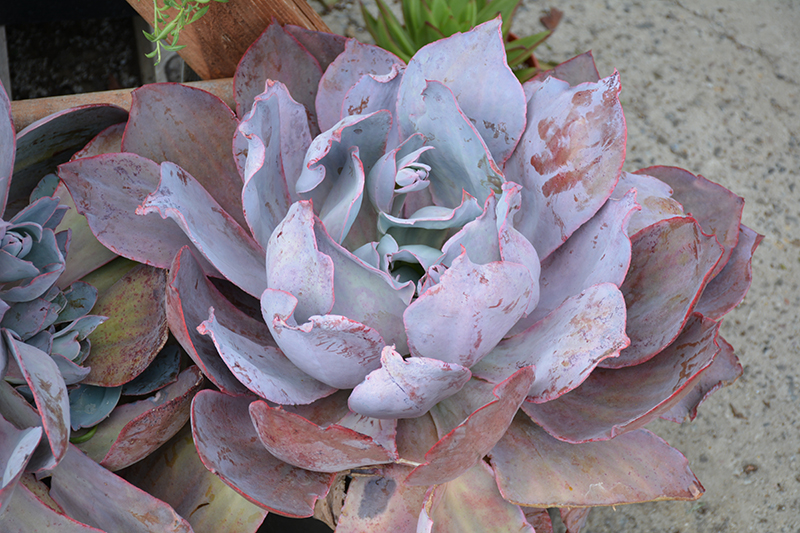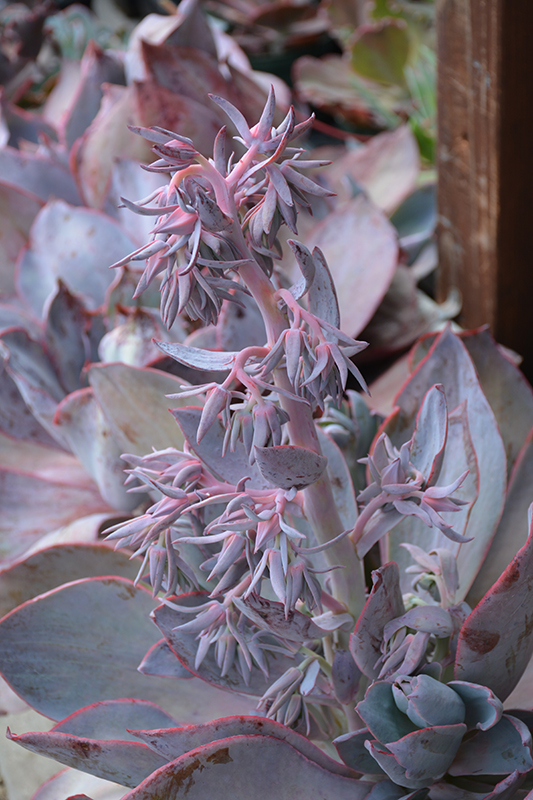Plant Height: 14 inches
Flower Height: 24 inches
Spread: 24 inches
Sunlight:
![]()
![]()
Other Names: Hens And Chicks
Description:
This variety is very drought tolerant, producing large rosettes of powdery lavender-pink tinged leaves; distinctive orange-red flowers on short stalks in summer; ideal for containers, indoors or out
Features & Attributes
Afterglow Echeveria features unusual spikes of salmon tubular flowers rising above the foliage from early to late summer. Its attractive succulent narrow leaves emerge lime green, turning lavender in color with showy pink variegation and tinges of coral-pink throughout the year. The coral-pink stems can be quite attractive and add to the plant's interest.
This is a dense herbaceous evergreen houseplant with tall flower stalks held atop a low mound of foliage. Its relatively fine texture sets it apart from other indoor plants with less refined foliage. This plant should not require much pruning, except when necessary to keep it looking its best.
Planting & Growing
When grown indoors, Afterglow Echeveria can be expected to grow to be about 14 inches tall at maturity extending to 24 inches tall with the flowers, with a spread of 24 inches. It grows at a medium rate, and under ideal conditions can be expected to live for approximately 20 years. This houseplant will do well in a location that gets either direct or indirect sunlight, although it will usually require a more brightly-lit environment than what artificial indoor lighting alone can provide. It prefers dry to average moisture levels with very well-drained soil, and may die if left in standing water for any length of time. This plant should be watered when the surface of the soil gets dry, and will need watering approximately once each week. Be aware that your particular watering schedule may vary depending on its location in the room, the pot size, plant size and other conditions; if in doubt, ask one of our experts in the store for advice. It is not particular as to soil pH, but grows best in sandy soil. Contact the store for specific recommendations on pre-mixed potting soil for this plant.
There are many factors that will affect the ultimate height, spread and overall performance of a plant when grown indoors; among them, the size of the pot it's growing in, the amount of light it receives, watering frequency, the pruning regimen and repotting schedule. Use the information described here as a guideline only; individual performance can and will vary. Please contact the store to speak with one of our experts if you are interested in further details concerning recommendations on pot size, watering, pruning, repotting, etc.
-- THIS IS A HOUSEPLANT AND IS NOT MEANT TO SURVIVE THE WINTER OUTDOORS IN OUR CLIMATE --


